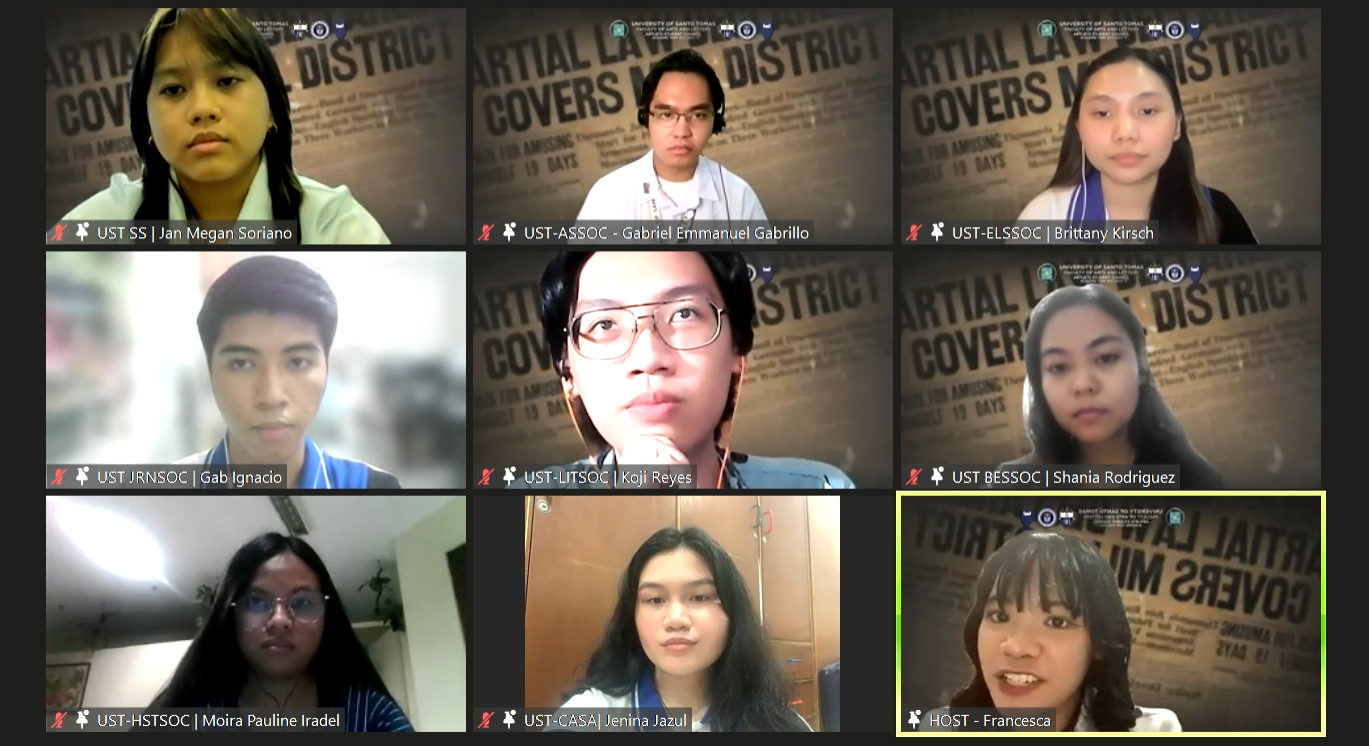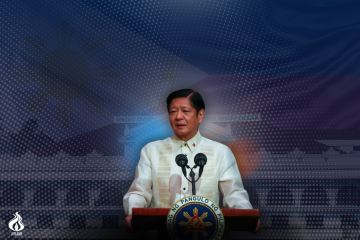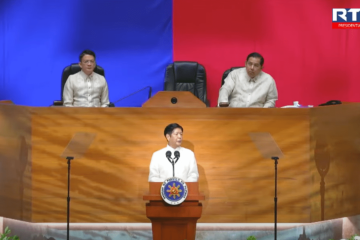
THE USE of hashtags and social media campaigns to combat Martial Law disinformation is efficient but not enough, the members of the Faculty of Arts and Letters Board of Majors (AB-BOM) said.
Instead, reaching out at the grassroots level is the more effective way to fight against historical distortion, said members of AB-BOM in the online forum titled, “Debunking the Golden Age: The Martial Law Online Exhibit.”
Communication Arts Students Association president Jenina Jazul said that although the use of hashtags is efficient, “physical and concrete campaigns” against historical distortion are more efficient.
“Although I’m really an advocate, it’s better to do on-ground work to fight against disinformation rather than always doing it via social media kasi nga there’s the tendency for echo chambers to happen,” said Jazul
Deputy Speaker and Literary Society president Koji Reyes urged Filipinos to revisit the country’s educational policies and approaches, and proposed to include the advocacy against misinformation into the curriculum.
“We do not have a shared national memory when it comes to martial law as a whole and that’s a problem in itself. How do we plan to address that problem?” Reyes said.
“We need to go where the problem is, where the problem is persisting, and maybe there we can actually physically make a difference, make a change,” he added.
He also said that using social media “doesn’t really do anything” since posts are only seen by one’s circle of friends and within the algorithm.
“We know what’s factual, we know what happened, we’ve read, we’ve seen all the credible, accurate literatures pero we have to show that to the people who’s not hearing what we’re hearing, who’s not seeing what we’re seeing, and engage in discourse there,” Reyes emphasized.
Meanwhile, Moira Iradel of the History Society believes that the campaign has helped in the problem of historical distortion and urged people to fact-check.
“But there’s so much more to social media […] and what we can do aside from the #NoToHistoricalDistortion is to tap people or help people contextualize these historical events […] and we have to let people understand its relevance and impacts,” Iradel said.
For Jan Soriano of the Sociology Society, the use of hashtags has an effect but questioned its sufficiency.
Soriano also urged Thomasians to conform with the masses and to exercise their actions by being “logical and technical” on which institution historical distortion is coming from and take action from there.
“Although this cause comes from a highly grounded perspective or agenda…theory without practice is just blind,” Secretary-General and English Language Studies Society representative Brittany Kirsch said.
Kirsch further explained that considering to whom we are sending the message with this hashtag is important when starting such a cause.
“The hashtag itself is already an action. I’m not saying it’s enough, depende pa rin doon sa magiging scope nung hashtag,” Journalism Society representative Gab Ignacio said.
He emphasized narrowing down the specific details, steps, or procedures on how this hashtag should be proliferated/disseminated on social media.
The members of the AB-BOM, which comprised of society presidents, oversee and monitor the transparency of the Artlets Student Council. F



